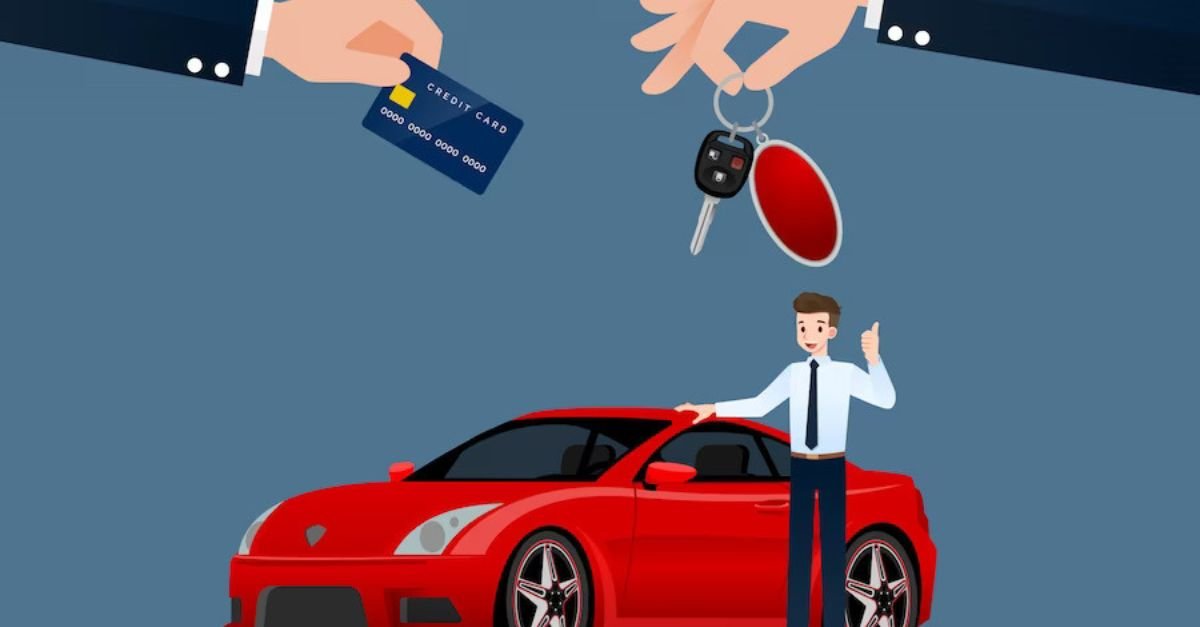
A credit card judgment is a legal decision. A court always makes this order that orders an individual to pay back a debt owed to a credit card company. This can happen after an individual has failed to make payments on their credit card for an extended period. Once a judgment is obtained, the creditor can pursue collection actions to receive payment for the debt owed. These actions may include garnishing wages or placing liens on property, but what about your car? Can a credit card judge take my car as payment? Let’s explore the possibilities.
Table of Contents
What Is a Credit Card Judgment?
A credit card judgment is a legal decision that confirms the debt’s existence and empowers the creditor to use judicial means to recover funds from the debtor. A creditor can request an “Order of Examination” or “Garnishment Order,” allowing access to financial accounts, liens on assets, wage garnishments, and property seizures. However, creditors must adhere to state laws outlining procedures and limitations on the amount they can recover. Depending on the state, wage garnishments may be limited to a certain percentage of the debtor’s disposable income, and some states do not allow them.
Will a Judgment Creditor Take My Car?
When credit card bills aren’t paid, creditors can sue. If the creditor wins the case, the court rules that the debt is real and lets the creditor collect the money in different ways. While creditors can legally take personal belongings like cars to pay off the debt, they must follow specific rules and laws. The court that made the ruling has the final say. Some states have laws that stop creditors from taking certain personal belongings, like cars, to pay off debts. This type of car might also affect whether a creditor can take it. For example, some states don’t allow creditors to take cars used for business, like buses.
How Does a Creditor Obtain a Judgement?
If you fall behind on credit card payments, your creditor may sell your debt to a collection agency. The agency will pressure you to pay the debt through phone calls and letters. If you ignore them, they may hire an attorney to sue you for the money owed. The process begins with a summons and complaint. This details the lawsuit and gives you a specific time to respond.
The creditor will receive a default judgment against you if you do not respond. He will be able to collect the total amount owed. If you do respond but lose the case, they will still obtain a court judgment and become a “judgement creditor” who can legally collect the debt from you. It is important to promptly address debt collection letters and lawsuits, as they can have severe consequences for your financial situation.
Remember, communicating with your creditors or seeking professional help may be able to provide alternative solutions, such as debt settlement or consolidation. It is always essential to stay informed and take the necessary steps to manage your debts effectively. So, instead of ignoring the situation, it is best to take proactive measures to address and resolve any outstanding debt.
What Happens After a Creditor Obtains a Judgement?
Once a judgment is handed down, the debtor’s assets—potentially including a vehicle—may become targets for settling the outstanding debt. The creditor could seek a lien on the car or even force its sale to recoup the owed funds. However, state laws, known as exemption laws, protect a debtor from a complete strip-down, often exempting specific assets from being seized.
Wage Garnishment:
Wage garnishments can be a harsh reality for those facing financial difficulties and debt. A creditor may obtain a court order to deduct a portion of your paycheck until the debt is settled, leaving you with less disposable income to cover essential expenses. But don’t worry; federal laws protect against excessive wage garnishments. The maximum amount that can be deducted is 25% of your disposable earnings or the amount exceeding 30 times the minimum wage, whichever is lower. However, in some cases, such as student loan defaults, the federal government can garnish up to 15% of your pay. It’s crucial to stay informed and understand your rights when facing a potential wage garnishment.
Bank Account Levy:
If you owe the debt, creditors may also have the option to obtain a court order and freeze your bank account. This allows them to use the money in your account to pay off your debt. However, it’s important to note that certain types of income, such as workers’ compensation payments, are exempt from bank account levies. The IRS does not require a court order to garnish your wages or levy your bank account for tax-related debts. Knowing your rights and seeking legal counsel can help protect your hard-earned savings.
Property Liens:
A lien can be placed on your real and personal property to secure a debt. You must pay off the lien before selling or transferring the property. In some cases, creditors may even force the sale of your property to satisfy the debt. Understanding and staying informed about any liens placed against your assets is essential, as they can have long-term consequences. Most commonly, liens are placed on real estate and become a matter of public record once filed with the county.
Can a Creditor Seize Your Vehicle?
It largely depends on the equity you have in the car and your state’s exemption laws. If your car’s value doesn’t exceed a certain threshold, it may not be seized. Moreover, if it’s collateral for a secured loan, the primary interest lies with the fast lender, not the judgment creditor. If there is no lien on the vehicle and it’s exempt from seizure, the creditor has no legal way to claim it. However, if the creditor successfully obtains a judgment lien on your car, they may have a right to sell or foreclose on it. In short, whether or not a creditor can take your car depends on the specific circumstances and applicable state laws.
Steps to Protect Your Car from a Credit Card Judgment
Here are some bullet points outlining steps to protect your vehicle:
- Understand Your State’s Exemption Laws: These dictate the amount of equity in your vehicle protected from creditors.
- Attend Court Hearings: Present your case and protect your rights.
- Negotiate with Creditors: Sometimes, a settlement can be reached outside court.
How Do I Know if I’m Judgment Proof?
This term refers to a scenario where your assets and income are entirely protected under state laws, making it futile for a creditor to pursue a court judgment against you. Elderly or disabled individuals often fall into this category if they rely solely on social security or retirement funds. To know if you have judgment proof, it’s best to consult with a financial advisor or an attorney specializing in debt and credit-related matters. Additionally, you can research your state’s exemption laws to understand what assets and income are protected. Knowledge is power, and understanding your legal standing can help you make informed decisions when faced with a credit card judgment. You can also check “ Can I Use My Personal Credit Card For My LLC?”
Legal options to protect your vehicle
Legal pathways exist to guard one’s car from judgment creditors. They involve:
- Claiming vehicle exemption laws.
- Filing for a motion to contest the seizure.
Can a Bankruptcy Protect My Car?
Individuals facing debt and worried about their creditors seizing their car should consider bankruptcy a potential solution to their current challenges. Bankruptcy is a tool that can prevent creditors from taking your car. When an individual files for bankruptcy, an automatic stay is started. This stay prevents creditors from tracking any collection activity against you. Automatic stays are one of the powerful tools in bankruptcy.
Once an individual receives a discharge from bankruptcy, their discharged debt is eliminated. This discharge acts as an injunction against creditors, preventing them from collecting or seeking payment for discharged debts. This means that individuals no longer owe those debts, and creditors cannot demand payment from them again.
Additional Information about Can a Credit Card Judgment Take My Car:
It is important to note that a judgment does not automatically become a lien on any property. It must first be entered as a judgment and then reduced to a lien. Therefore, filing for bankruptcy before the judgment is entered and becoming a lien on your car is best. If you file before this happens, your car will be protected like any other asset in bankruptcy rather than being affected by a lien.
Many individuals assume that filing for bankruptcy means they will have to surrender their cars. However, this is not true. Bankruptcy exemptions allow individuals to keep their cars as long as the equity in the vehicle falls under an exemption amount. For example, if your car price is $5,000, you can exempt up to $3,450 in equity. Only a portion of your car’s value will be protected. In this case, the bankruptcy trustee may sell the non-exempt portion to repay creditors. If the price of your car is $2000, then it is expected.
Individuals with outstanding car loans must also follow the same rules. Any outstanding loan balance reduces the amount of equity in a vehicle. For example, if you have an exceptional loan of $10,000 and your car price is $12,000. Then, you have only $2,000 of equity that needs to be protected by an exemption. Individuals need to understand that if they intend to keep their car and file for bankruptcy, they must continue making payments on the loan according to the terms of the agreement. They must also obtain court approval through a reaffirmation agreement to keep paying off the loan. This ensures that individuals and their creditors are protected during and after bankruptcy. Overall, individuals should carefully consider all their options and seek professional advice before deciding on bankruptcy.
The Importance of Consulting with an Attorney
Given the complexities surrounding exemption laws and asset protection. Consulting with an attorney specializing in debt collection and bankruptcy can be integral to securing the best outcome. An attorney can evaluate your financial situation, determine what exemptions you qualify for, and guide you on the most suitable course of action. They can also represent you in court hearings or negotiations with creditors and help protect your rights as a debtor.
In addition to legal representation, a bankruptcy attorney can provide valuable advice on managing debt and credit in the future to avoid similar situations. Ultimately, seeking professional legal advice can help you navigate the complexities of a credit card judgment and protect your assets, including your vehicle. So, if you’re facing a credit card judgment or struggling with debt, don’t hesitate to consult with an attorney to explore your options and find the best path forward. Remember, knowledge is power; taking control of your financial situation can give you peace of mind and help you secure a stable future. So, don’t wait until it’s too late – seek legal advice and take control of your finances today! You can also check “Can a Credit Card Company Place a Lien on Your House?”
Conclusion
In conclusion, a credit card judgment can potentially take your car if the creditor obtains a court order to do so. This is called a vehicle reclamation. Certain exemptions and limitations are in place to protect your car from being taken away.
Understanding your rights and options is essential when facing a credit card judgment. You can negotiate with the creditor for a payment plan or even file for bankruptcy to discharge the debt. Keeping up with your payments and avoiding defaulting on your credit card debt is also essential.
In addition, seeking legal advice from a reputable attorney can help you navigate the complex process of dealing with a credit card judgment. They can provide valuable guidance and potentially find ways to protect your assets, including your car.
Disclaimer: The information presented in this article is for informational purposes only. Consult with an Attorney. Additionally, laws and exemptions may vary by state, so it’s crucial to research the specific laws applicable in your location. Always stay informed and protect your rights as a debtor. Stay financially responsible to avoid potential legal issues in the future.
FAQs: Can a Credit Card Judgment Take My Car?
What is a credit card judgment?
A credit card judgment is a legal order issued by a court that states you owe money to a creditor due to delinquent credit card payments. This can happen when you fail to make minimum monthly payments or default on your credit card debt.
Can a credit card judgment affect my car?
Yes, a credit card judgment can impact your car as it is considered an asset the creditor can seize to repay the debt.
How does a creditor take my car after obtaining a credit card judgment?
A creditor can request the court to issue a writ of execution or garnishment on your car, which allows them to seize and sell the vehicle to pay off the debt.
Is my car exempt from being taken in a credit card judgment?
In some states, some exemptions protect certain types of property from being taken in a credit card judgment. These exemptions vary by state but typically include necessities such as a primary residence, personal belongings, and a certain amount of equity in a car.
How can I protect my car from being taken in a credit card judgment?
You can try negotiating with your creditor for a payment plan or settlement before they obtain a credit card judgment. You can also consult with a bankruptcy attorney to explore your options for filing for bankruptcy, which may provide some protection for your car.






